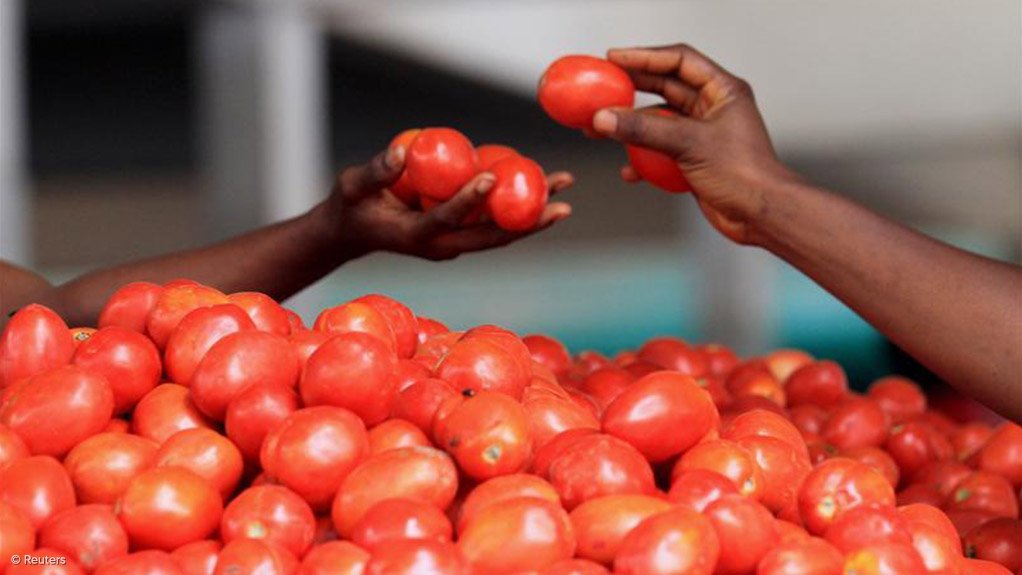Fresh Produce Market Inquiry to look into unexplainable food price hikes, market barriers
The Competition Commission has confirmed it will start a Fresh Produce Market Inquiry (FPMI) on March 31, to determine whether there are any activities or features in the fresh produce value chain that impede, restrict or distort competition.
The commission aims to complete the inquiry within 18 months and publish a report on its findings by September 2024.
By understanding how the fresh produce value chain functions, the commission hopes to contribute towards safeguarding the ability of role-players across the value chain to compete and participate in the value chain and, ultimately, deliver the best prices to consumers.
The commission has identified five fruits and six vegetables for which the value chain will be investigated, including apples, citrus, bananas, pears and table grapes, as well as potatoes, onions, carrots, cabbage, tomatoes and spinach.
These fresh produce items account for 70% of fresh produce sales in South Africa.
Consumers have been hit hard by high food prices in recent years, partly owing to supply chain disruptions brought about by Covid-19 and the Ukraine war, as well as high inflation. However, an inefficient or uncompetitive value chain may also contribute to high food prices.
A dedicated team has been appointed to undertake the FPMI. It will engage with interested parties, including through public hearings in all provinces where the identified fruit and vegetables to be investigated are produced.
The commission will soon confirm dates and venues for public hearings over the next 18 months.
The inquiry’s scope of work includes a consideration of whether the value chain is functioning efficiently, with a focus on trading at fresh produce market facilities; and an investigation into how markets function for key inputs used by farmers, including seeds, fertiliser and agrochemicals.
Importantly, the FPMI will also determine what obstacles farmers face in entering, expanding or participating in the fresh produce sector, particularly smallholder or emerging farmers.
The FPMI ultimately aims to address problems that hamper the proper functioning of the fresh produce value chain, from input manufacturing to retail, including uncompetitive activity.
The guidelines for participation in the FPMI, as well as a Statement of Issues, has been published on www.compcom.co.za and any correspondence can be sent to freshproduceinq@compcom.co.za.
Responding to why the commission initiated this FPMI, Competition Commission commissioner Doris Tshepe told media on March 23 that the commission had reason to believe that features may exist in this market that made it uncompetitive, including from complaints received alleging anticompetitive conduct and unexplainable, alarming increases in certain product prices, with many prices increasing beyond the yearly inflation rate.
These increases had had a disproportionate effect on low-income households, she confirmed.
Because the South African fresh produce market is characterised by high levels of concentration in the value chain, it provides a base for collusive or other uncompetitive behaviours.
Tshepe said the commission would look at routes to market, cost of participation in the market, barriers to entry, concentration levels, price determination methodologies, buyer power and how direct contracting between farmers and wholesalers or retailers works.
She added that the commission would gather information from the points of produce through to retail, including informal hawkers.
FPMI chairperson and Competition Commission deputy commissioner Hardin Ratshishushu stated that, because the input markets for fresh produce were especially concentrated, the FPMI would look into the barriers to access for small and emerging farmers for critical inputs such as finance, fertiliser, seeds, water and agrochemicals.
If the commission finds anticompetitive conduct to be present in some of the fresh produce value chains, the commission will present its remedial recommendations to stakeholders including the Minister of Trade, Industry and Competition and regulatory authorities, as well as other stakeholders.
The commission’s recommendations are legally binding and can be appealed before the Competition Tribunal.
Comments
Announcements
What's On
Subscribe to improve your user experience...
Option 1 (equivalent of R125 a month):
Receive a weekly copy of Creamer Media's Engineering News & Mining Weekly magazine
(print copy for those in South Africa and e-magazine for those outside of South Africa)
Receive daily email newsletters
Access to full search results
Access archive of magazine back copies
Access to Projects in Progress
Access to ONE Research Report of your choice in PDF format
Option 2 (equivalent of R375 a month):
All benefits from Option 1
PLUS
Access to Creamer Media's Research Channel Africa for ALL Research Reports, in PDF format, on various industrial and mining sectors
including Electricity; Water; Energy Transition; Hydrogen; Roads, Rail and Ports; Coal; Gold; Platinum; Battery Metals; etc.
Already a subscriber?
Forgotten your password?
Receive weekly copy of Creamer Media's Engineering News & Mining Weekly magazine (print copy for those in South Africa and e-magazine for those outside of South Africa)
➕
Recieve daily email newsletters
➕
Access to full search results
➕
Access archive of magazine back copies
➕
Access to Projects in Progress
➕
Access to ONE Research Report of your choice in PDF format
RESEARCH CHANNEL AFRICA
R4500 (equivalent of R375 a month)
SUBSCRIBEAll benefits from Option 1
➕
Access to Creamer Media's Research Channel Africa for ALL Research Reports on various industrial and mining sectors, in PDF format, including on:
Electricity
➕
Water
➕
Energy Transition
➕
Hydrogen
➕
Roads, Rail and Ports
➕
Coal
➕
Gold
➕
Platinum
➕
Battery Metals
➕
etc.
Receive all benefits from Option 1 or Option 2 delivered to numerous people at your company
➕
Multiple User names and Passwords for simultaneous log-ins
➕
Intranet integration access to all in your organisation




















